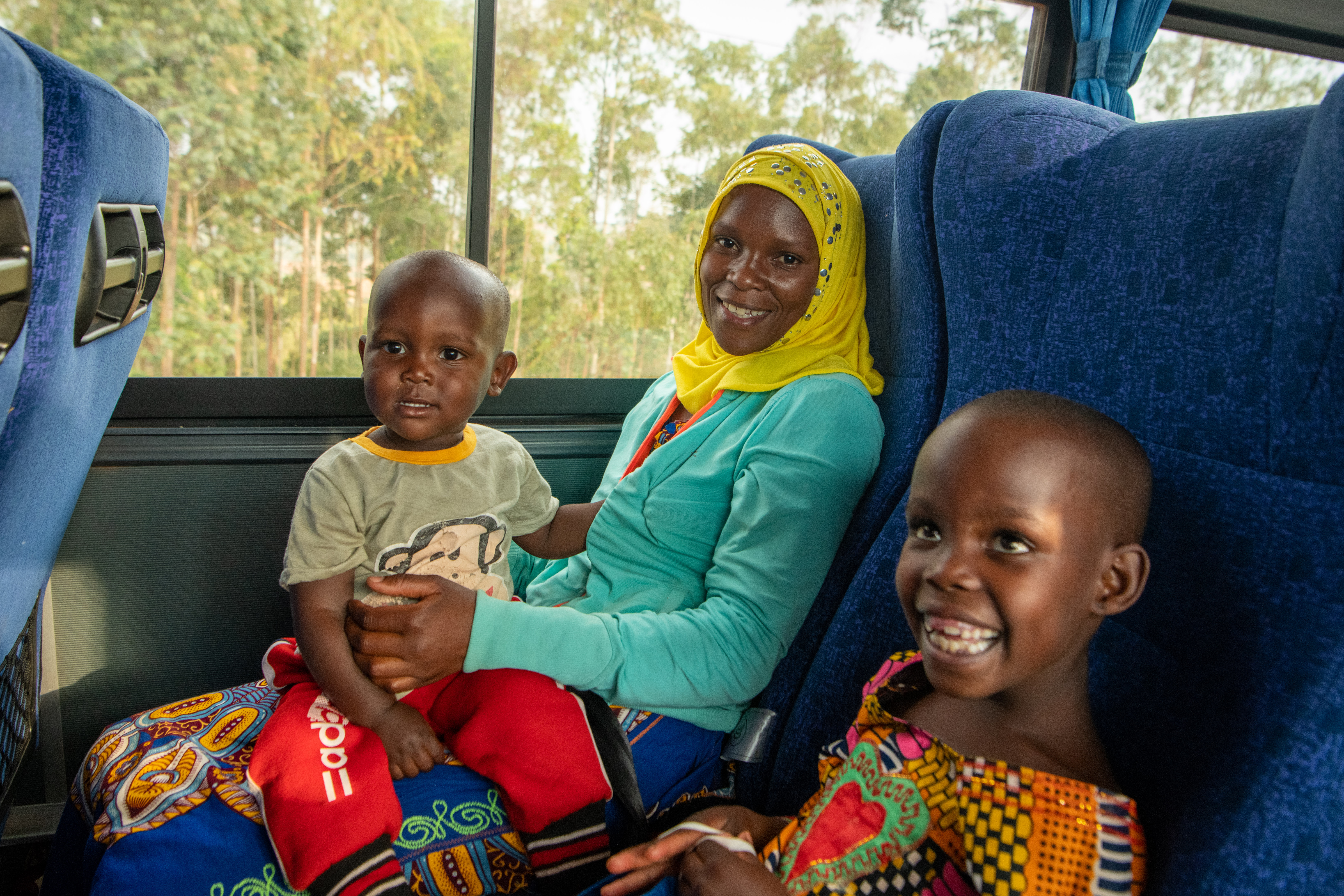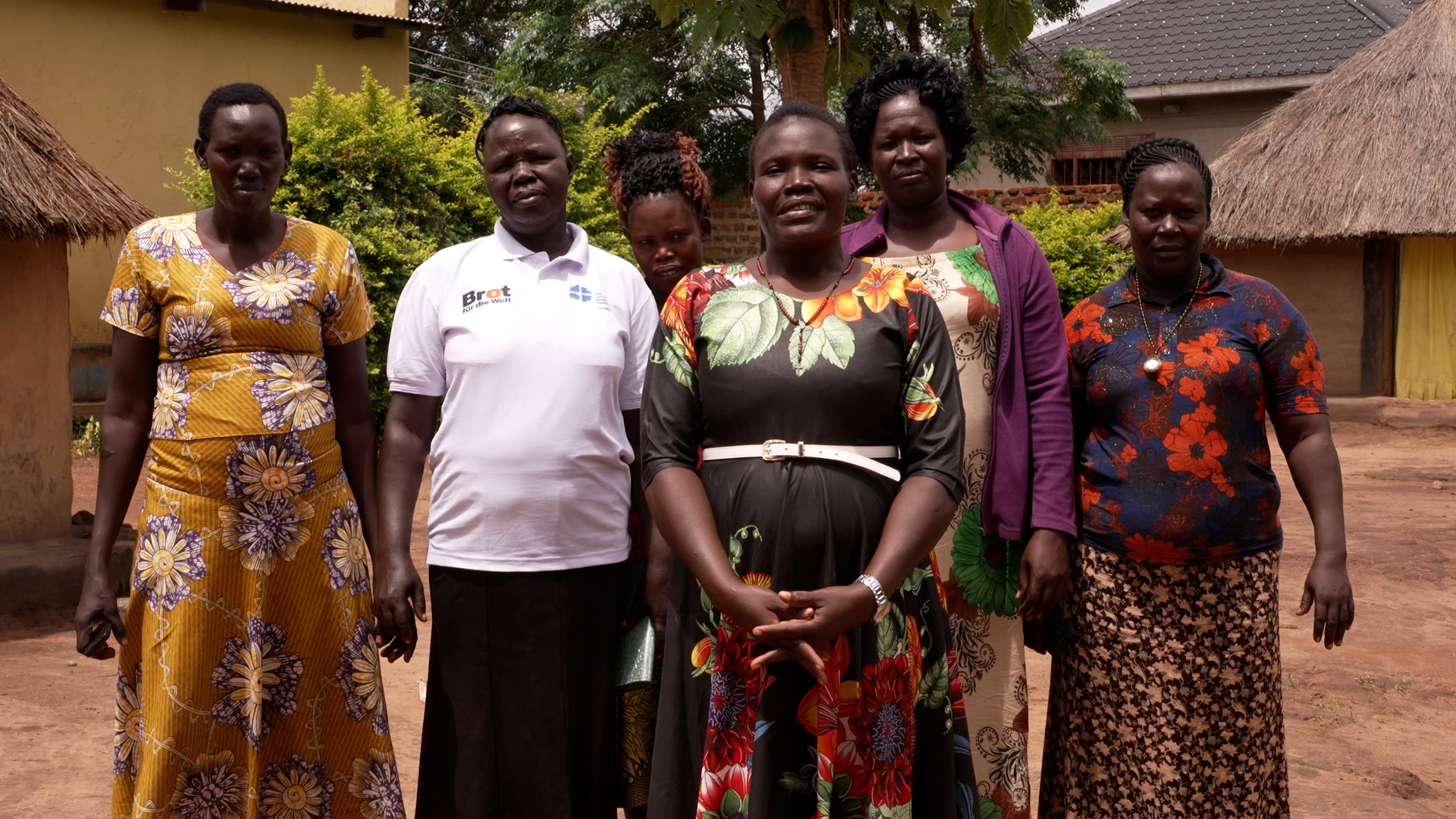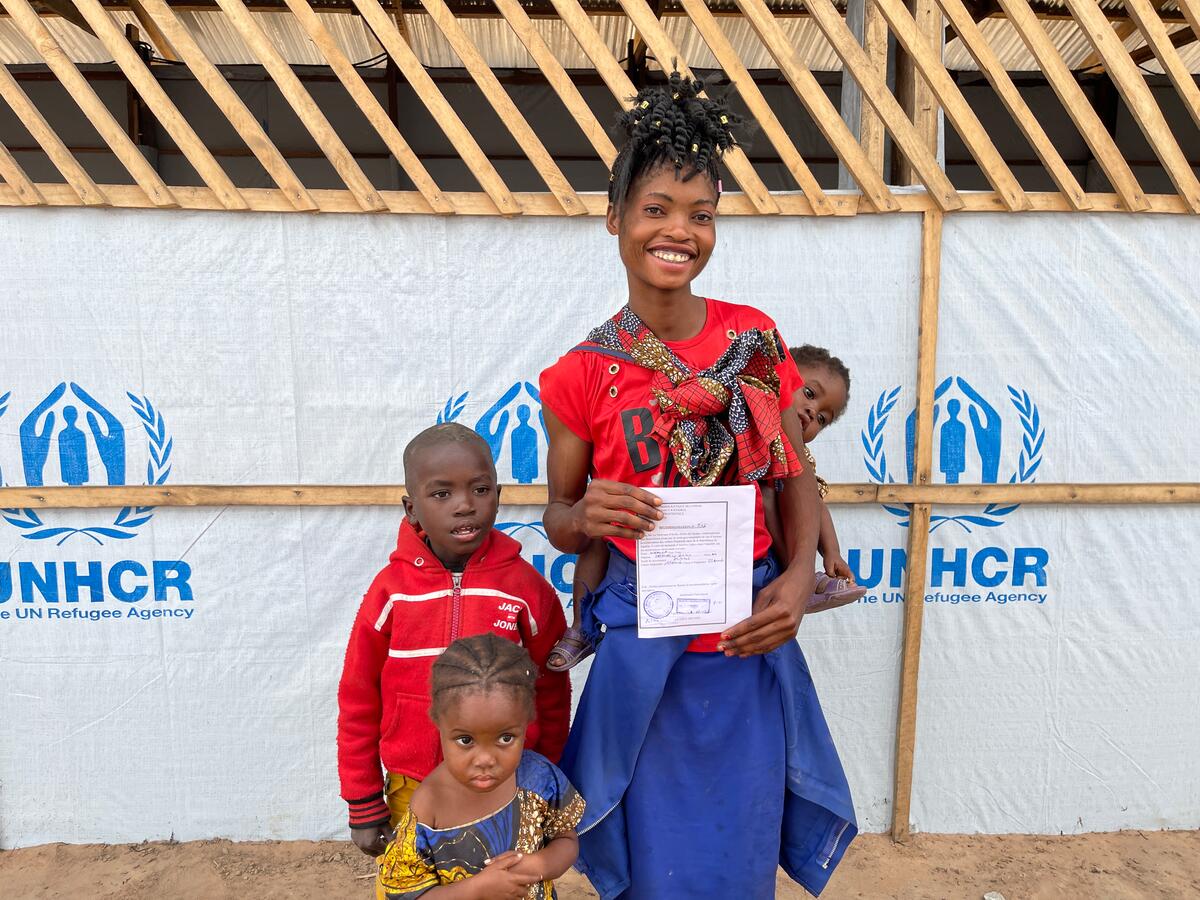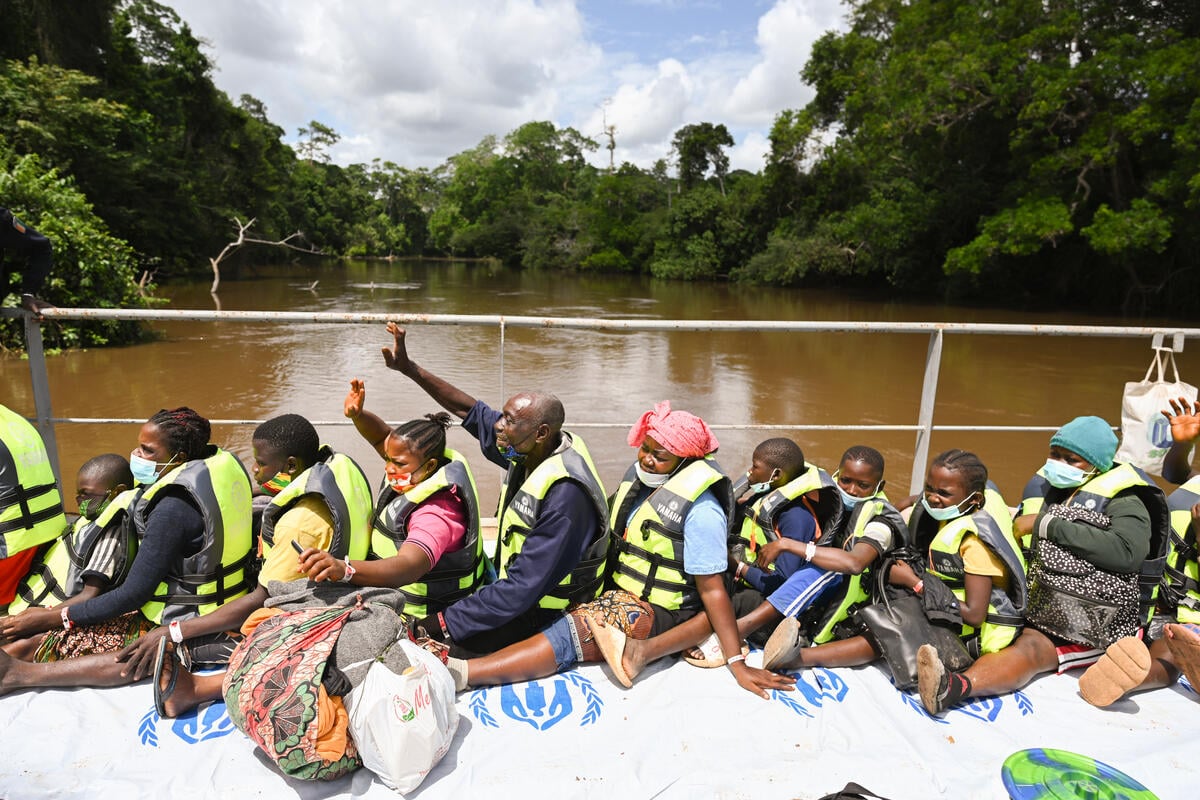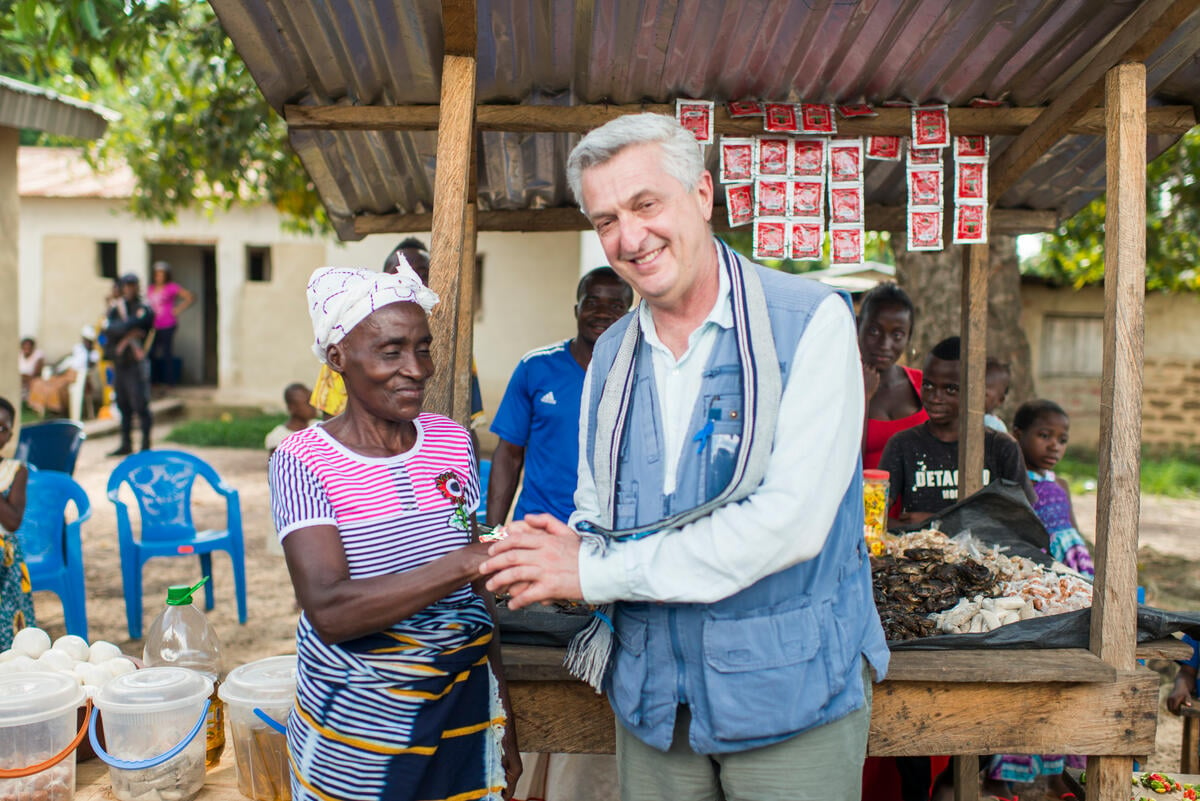Tears and cassava: joyous homecoming in Burundi after a lifetime in exile
Tears and cassava: joyous homecoming in Burundi after a lifetime in exile

MUYANGE, Burundi, December 3 (UNHCR) - After spending half his life in exile, 30-year-old Feliyaza Bucumi has finally brought his six children and pregnant 28-year-old wife back to his ancestral home. "Whenever we talked about Burundi, they thought it was a fairy tale," Feliyaza says with a smile, gesturing to the children around him, who range in age from one to almost 10.
Even though they were born as refugees in Tanzania, "the children told me to go home" to Burundi, he relates in a UNHCR-run transit centre as the family prepares to board a truck for the last leg of the journey to his home hamlet of Muyange in Nyanza-Lac commune.
It is one of the three areas drawing most of the 17,000 former refugees who have come home from Mtabila camp since the end of October with the help of the UN refugee agency after the government of Tanzania found that some 37,500 Burundians living in the country needed to leave by the end of the year. A further 2,715 are being allowed to remain in Tanzania as refugees until long-term solutions can be found for them.
Feliyaza was only 15 when he fled to Tanzania, one of hundreds of thousands who fled civil strife in Burundi in the 1990s. Over the years, UNHCR has assisted more than a million return and re-establish their lives in Burundi, and now is helping the last come back and reintegrate. These include thousands of children, like his, who were born abroad and have never seen their supposed homeland.
Sitting in the Mabanda transit centre where his family has had a hot meal, Feliyaza's main concern is for his pregnant wife, Vastina, who will travel to their home village separately in a UNHCR van.
"I am very happy and I have no problems except I am worried about my wife because she is seven months pregnant," he says. The four-hour bus trip from Tanzania had been rough on her, but all she had to say was: "I am very tired."
Upon reaching Muyange, the family is met by Feliyaza's brother and other joyous villagers. When the UNHCR trucks arrive, residents - many of whom had also been refugees in Mtabila - rush from the market to greet the returnees with warm hugs and a few tears. There are shouts of "Amahoro," the Kirundi greeting which means "peace."
"What were you waiting for?" someone calls out. "There's no war here," yell several others, referring to the propaganda they felt had caused many to delay their homecoming. "Today I ate cassava," adds another villager. "Look at me - I'm healthy."
A UNHCR protection associate who has accompanied the convoy to Muyange explains: "The residents want all the people in Mtabila to come back."
One older woman dressed in bright yellow, with tears streaming down her face, is hugging men and women she hasn't seen for years and calling out loudly: "Turatashe! Turatashe!" ("We returned home")
For Feliyaza there's little time for celebration. He sets about unloading the family's possessions from the UNHCR trucks and wondering how he will get them to his plot of land - and how he will build a home for his family on the land, where he plans to farm.
For now, though, he's just relieved to be back on Burundian soil: "I feel glad because I'm among my relatives."
By Kitty McKinsey in Muyange, Burundi


